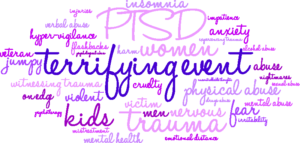Anxiety Relief in Folsom and Sacramento
If you or a loved one are suffering with anxiety you know the pain and toll this disease can take. Anxiety robs people of the ability to feel connected, enjoy their life, and engage in meaningful events. Anxiety effects millions of people every year. Be assured, anxiety relief is available, effective and can be customized to your needs.
What is Anxiety? What are the Types of Anxiety?
According to the NIMH (National Institute of Mental Health), occasional anxiety is a normal part of life. You might feel anxious when faced with a problem at work, before taking a test, or making an important decision. But anxiety disorders involve more than temporary worry or fear. For a person with an anxiety disorder, the anxiety does not go away and can get worse over time. The feelings can interfere with daily activities such as job performance, school work, and relationships. There are several different types of anxiety disorders. Examples include generalized anxiety disorder, panic disorder, and social anxiety disorder.
Get Started Today!
Call us at (844) 546-6788
to schedule a free 20 minute consultation
Folsom CA 95630 and Sacramento CA 95825
Generalized Anxiety Disorder
People with generalized anxiety disorder display excessive anxiety or worry for months and face several anxiety-related symptoms.
Generalized anxiety disorder symptoms include:
- Restlessness or feeling wound-up or on edge
- Being easily fatigued
- Difficulty concentrating or having their minds go blank
- Irritability
- Muscle tension
- Difficulty controlling the worry
- Sleep problems (difficulty falling or staying asleep or restless, unsatisfying sleep)
Post Traumatic Stress Disorder:
People with Post Traumatic Stress disorder may look perfectly calm at times, but then get triggered by a sound, a specific phrase, an image or even internal stimuli such as flashbacks and nightmares. This can be a severely debilitating condition that can cause a downward spiral into isolation, withdrawal, distraction in drugs and alcohol, shame, domestic violence and job loss.
Post Traumatic Stress Disorder symptoms include:
- Restlessness or feeling wound-up or on edge
- Hyper vigilance, like a soldier constantly looking for a sniper.
- Difficulty concentrating or having their minds go blank
- Irritability, anger and extremely aggressive reactions to seemingly minor things.
- Muscle tension
- Difficulty controlling the worry
- Feeling guilty, isolated and misunderstood
- Sleep problems (difficulty falling or staying asleep or restless, unsatisfying sleep)
- Haunting images and flashbacks
Panic Disorder
People with panic disorder have recurrent unexpected panic attacks, which are sudden periods of intense fear that may include palpitations, pounding heart, or accelerated heart rate; sweating; trembling or shaking; sensations of shortness of breath, smothering, or choking; and feeling of impending doom.
Panic disorder symptoms include:
- Sudden and repeated attacks of intense fear
- Feelings of being out of control during a panic attack
- Intense worries about when the next attack will happen
- Fear or avoidance of places where panic attacks have occurred in the past
Social Anxiety Disorder/Social Phobia
People with social anxiety disorder (sometimes called “social phobia”) have a marked fear of social or performance situations in which they expect to feel embarrassed, judged, rejected, or fearful of offending others.
Social Phobia symptoms include:
- Feeling highly anxious about being with other people and having a hard time talking to them
- Feeling very self-conscious in front of other people and worried about feeling humiliated, embarrassed, or rejected, or fearful of offending others
- Being very afraid that other people will judge them
- Worrying for days or weeks before an event where other people will be
- Staying away from places where there are other people
- Having a hard time making friends and keeping friends
- Blushing, sweating, or trembling around other people
- Feeling nauseous or sick to your stomach when other people are around
Evaluation for an anxiety disorder often begins with a visit to a primary care provider. Some physical health conditions, such as an overactive thyroid or low blood sugar, as well as taking certain medications, can imitate or worsen an anxiety disorder. A thorough mental health evaluation is also helpful, because anxiety disorders often co-exist with other related conditions, such as depression or obsessive-compulsive disorder.
Risk Factors
Researchers are finding that genetic and environmental factors, frequently in interaction with one another, are risk factors for anxiety disorders. Specific factors include:
- Shyness, or behavioral inhibition, in childhood
- Having few economic resources
- Being divorced or widowed
- Exposure to stressful life events in childhood and adulthood
- Anxiety disorders in close biological relatives
- Parental history of mental disorders
- Elevated afternoon cortisol levels in the saliva (specifically for social anxiety disorder)
Anxiety Relief in Folsom and Sacramento
Anxiety disorders are generally treated with psychotherapy, medication, or both. It is important to know that specific anxiety disorders respond best to specific treatment methods. As this topic is expanded we will elaborate on specific anxiety relief for each major issue.
Psychotherapy
Anxiety relief with Psychotherapy or “talk therapy” can be very effective. For maximum benefit, psychotherapy must be directed at the person’s specific anxieties and tailored to his or her needs. A typical “side effect” of psychotherapy is temporary discomfort involved with thinking about confronting feared situations. This is a significant issue with anxiety relief and may trigger many therapy interfering behaviors. Things like avoiding the problem actually make anxiety relief more complex and often increase anxiety. In order to be truly effective in anxiety relief psychotherapy must be consistent, ideally at the same time and day of the week each week or every other week and homework should be done outside of sessions to work thru anxious responses.
Anxiety Relief with Self-Help or Support Groups
Some people with anxiety disorders might benefit from joining a self-help or support group and sharing their problems and achievements with others. Anxiety relief thru Internet chat rooms might also be useful, but any advice received over the Internet should be used with caution, as Internet acquaintances have usually never seen each other and false identities are common. Talking with a trusted friend or member of the clergy can also provide support, but it is not necessarily a sufficient alternative to care from an expert clinician.
Medication
Medication does not cure anxiety disorders but often relieves symptoms. Medication can only be prescribed by a medical doctor (such as a psychiatrist or a primary care provider), but a few states allow psychologists to prescribe psychiatric medications.
Medications are sometimes used as the initial anxiety relief disorder, or are used only if there is insufficient response to a course of psychotherapy. In research studies, it is common for patients treated with a combination of psychotherapy and medication to have better outcomes than those treated with only one or the other.
The most common classes of medications used to combat anxiety disorders are antidepressants, anti-anxiety drugs, and beta-blockers (visit Mental Health Medications). Be aware that some medications are effective only if they are taken regularly and that symptoms may recur if the medication is stopped.
Anxiety Relief with Stress-Management Techniques
Stress management techniques and meditation can help people with anxiety disorders calm themselves and may enhance the effects of therapy. While there is evidence that aerobic exercise has a calming effect, the quality of the studies is not strong enough to support its use as treatment. Since caffeine, certain illicit drugs, and even some over-the-counter cold medications can aggravate the symptoms of anxiety disorders, avoiding them should be considered. Check with your physician or pharmacist before taking any additional medications.
Anxiety Relief can be improved with family support and engagement. Ideally, the family should be supportive but not help perpetuate their loved one’s symptoms.
Spirituality and Anxiety Relief
Having a faith tradition or connection with the sacred can bring meaning, purpose and compassion for ourselves. According to Huston Smith, all major religions answer some very important questions. These questions include:
- Why am I here?
- What is the purpose of life?
- Why do good things happen to bad people and bad things happen to good people?
- What happens when I die?
Each one of these questions can be answered thru religion, spirituality, philosophy and existentialism. Anxiety Relief can be deepened thru a deeper sense of purpose, meaning and understanding. It is vitally important to the development and integrity of ourselves that we develop and nurture a felt sense of meaning and connection with the universe. It is equally important that this felt sense be authentic and support the ability to question and examine our beliefs. We do not have to commit to a path that feels wrong to us. We should be free to develop a deeper understanding of the universe of both the sacred and profane according to our values and traditions.
Anxiety Relief through Cognitive Behavioral Therapy (CBT)
CBT is a type of psychotherapy that can help people with anxiety disorders. It teaches a person different ways of thinking, behaving, and reacting to anxiety-producing and fearful situations. CBT can also help people learn and practice social skills, which is vital for treating social anxiety disorder.
Two specific stand-alone components of CBT used for anxiety relief are cognitive therapy and exposure therapy. Cognitive therapy focuses on identifying, challenging, and then neutralizing unhelpful thoughts underlying anxiety disorders.
CBT may be conducted individually or with a group of people who have similar problems. Group therapy is particularly effective for social anxiety disorder. Often exercises are available to more quickly overcome anxiety symptoms between sessions. These exercises often lead to a sense of mastery, improved functioning and a tool box of skills to apply to many challenging life situations.
Exposure therapy focuses on confronting the fears underlying an anxiety disorder in order to help people engage in activities they have been avoiding. Exposure therapy is used along with relaxation exercises and/or imagery.
I hope this overview on anxiety relief and symptoms has been beneficial in understanding more about anxiety. If you, or someone you know would benefit from treatment, please give us a call.
Get Started Today!
Call us at (844) 546-6788
to schedule a free 20 minute consultation
Now with two locations to serve you
25 Cadillac Drive #132 Sacramento CA 95825
2600 East Bidwell #215 Folsom CA 95630
Information provided on this site does not constitute a patient therapist relationship, and should be used under the guidance of a licensed mental health professional. Information presented on this page was written by James Meyer, LCSW Lead Counselor and Founder of Lions Heart Counseling Sacramento.
Information presented on this page was written by James Meyer, LCSW and derived from the NIMH website.









